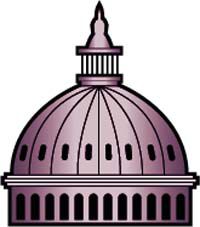When the 2008 Utah Legislature begins the general session on Jan. 21, the problem of corrections and what to do about prisons will be one of the items at the top of the list for discussion.
Utah is in a unique situation as its economy continues to be hot, while much of the rest of the nation cools.
Usually during times of a vibrant economy, crime goes down and jail stays decrease.
Yet the state’s penitentiary population continues to grow. Much of the situation may be due to the booming population along the Wasatch Front.
With that in mind, Governor. Jon Huntsman has proposed $130 million in his state budget for 2008, much of which would go toward expanding prison facilities.
The governor also pointed out in his presentation on the proposed budget on Dec. 10 that something needs to be done to stabilize the turnover in the state’s corrections department.
House Minority Leader Brad King believes the problem gets more complicated every year.
“We have been having unfortunate growth in prison population in the last few years,” said King last week. “With the increases in education funding, we did last year and are intending to do next year, that is a good investment in cutting down crime in the future. But we must deal with what we have now as well.””Along with adding to the present facilities and fixing the turnover problem we must also look at what we are doing with the counties in terms of which inmates to place in their ties and what we pay for in terms of programs for those inmates.”
King indicated that he is concerned about the fact that, beyond paying for the incarceration of the inmates in county facilities, the state does little in terms of rehabilitation or education when the prisoners are farmed out.
“Recidivism is very affected by those kinds of programs,” pointed out the District 67 representative.
Utah lawmakers participating in 2008 legislative session will also begin to talk about the state getting into the business of being sure everyone has at least some kind of rudimentary health insurance plan.
| Gov. Huntsman’s 2008 state budget recommendations Where state dollars come from |
| Income tax (49%)
|
The governor has proposed $30 million in state funding to upgrade such programs as the Children’s Health Insurance Plan (CHIP) and adult Medicaid in Utah.
But the ultimate goal is to be sure everyone has insurance by making plans for everyone mandatory.
“In concept, it will be similar to how we require everyone who owns a car to have insurance,” explained King. “Details are still up in the air, but such plans will be handled by private insurance and not by the state. It will require an insurance exchange so that insurance will become portable.”
“There are still a lot of questions to be answered about how it will work,” noted the District 67 representative. “I just think we need to find ways to help people who have no insurance or little insurance.”
The second largest chunk of the governor’s recommended 2008 budget is slated to go toward highways at $437 million.
How the money in question will affect highways in the Carbon County area remains to be seen even though priority lists are established for road construction and rebuilding, noted King.
Often in the past, projects along choke points on the Wasatch Front have received priority and things may not be any different during the upcoming year.
In addition, there are a lot of concerns about how much county money can and should be used to operate the Utah Transit Authority along the Wasatch Front.
The concerns seem to be compounded with Frontrunner, the commuter rail system that will eventually link southern Utah County all the way through Brigham City, coming on line.
The 2008 Utah Legislature will also have more than financial issues to deal with, noted the state representative.
Every year, hundreds of bills are introduced that could alter or create new laws in the state.
“There will be a number of things that I am sure we will see introduced,” pointed out King. “First will be some kinds of bills about immigration. These bills are there because congress has failed to act on the issue. State measures concerning immigration, however, are just bandaides compared to what could be done nationally if congress would act.”
King indicated that another issue – to some extent, a spin off of the vote on referendum one in the November election – will be about how to fund charter schools.
And then there are the weird bills that appear before the legislators on an annual basis.
“There are 800 bills introduced each year,” said the District 67 representative, showing off the lists of proposals being readied for submittal on his computer. “I am sure in this group are some strange bills like we always seem to see.”
With King’s new position as the Utah House of Representatives’ minority leader, he will be more in the thick of things than in the past.
“I will be doing a lot more with the upstate media and others,” commented King. “Interviews will be plentiful and I will be busy.”

